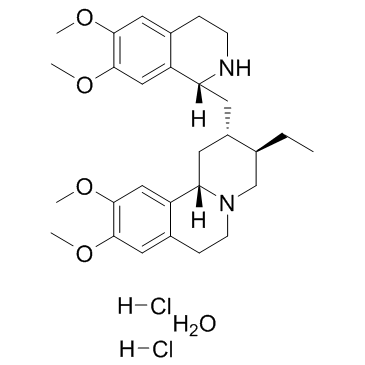Aberrant splicing of the E-cadherin transcript is a novel mechanism of gene silencing in chronic lymphocytic leukemia cells.
Sanjai Sharma, Alan Lichtenstein
Index: Blood 114(19) , 4179-85, (2009)
Full Text: HTML
Abstract
Premature termination codon (PTC) mutations are due to insertion or deletion of nucleotides causing a frameshift and premature termination codon in RNA. These transcripts are degraded by the nonsense-mediated decay pathway and have a very short half-life. We used a microarray technique to screen for genes that up-regulate their RNA signal upon nonsense-mediated decay pathway blockade in chronic lymphocytic leukemia (CLL) specimens and identified an E-cadherin transcript with PTC. Sequencing revealed an aberrant E-cadherin transcript lacking exon 11, resulting in a frameshift and PTC. The aberrant E-cadherin transcript was also identified in normal B cells, but occurred at a much lower level compared with CLL cells. In CLL specimens, E-cadherin expression was depressed more than 50% in 62% cases (relative to normal B cells). By real-time polymerase chain reaction analysis, the relative amounts of wild-type transcript inversely correlated with amounts of aberrant transcript (P = .018). Ectopic expression of E-cadherin in CLL specimens containing high amounts of aberrant transcript resulted in down-regulation of the wnt-beta-catenin pathway reporter, a pathway known to be up-regulated in CLL. Our data point to a novel mechanism of E-cadherin gene inactivation, with CLL cells displaying a higher proportion of aberrant nonfunctional transcripts and resulting up-regulation of the wnt-beta-catenin pathway.
Related Compounds
| Structure | Name/CAS No. | Molecular Formula | Articles |
|---|---|---|---|
 |
Emetine dihydrochloride hydrate
CAS:7083-71-8 |
C29H40N2O4.2HCl.H2O |
|
Histone deacetylase 3 inhibition re-establishes synaptic tag...
2015-01-01 [Sci. Rep. 5 , 16616, (2015)] |
|
TDP-43 is recruited to stress granules in conditions of oxid...
2009-11-01 [J. Neurochem. 111(4) , 1051-61, (2009)] |
|
A molecular screening approach to identify and characterize ...
2011-10-01 [Mol. Cancer Ther. 10(10) , 1818-28, (2011)] |
|
Characterization of alternative isoforms and inclusion body ...
2010-01-01 [J. Biol. Chem. 285(1) , 608-19, (2010)] |
|
MST kinases monitor actin cytoskeletal integrity and signal ...
2009-12-01 [Mol. Cell. Biol. 29(24) , 6380-90, (2009)] |